Overview
Participants in 401(k) plans may save after tax dollars in the plan. The benefit to employees is that this money – called a “Roth 401(k) deferral”- will not be taxed when you take a Plan distribution.
In order for participants to have all the available information about these kinds of contributions, we have developed the following Frequently Asked Questions.
Question #1: What is the difference between a regular 401(k) deferral (pre-tax) and a Roth 401(k) deferral?
Answer: You will be able to continue making deferrals as you always have (these are pre-tax deferrals and are referred to as Regular 401(k) deferrals), or you may make a Roth 401(k) deferral. If you make a Regular 401(k) deferral, then your taxable income is reduced by the deferral contribution, so you pay less in current federal income taxes. Later, when the Plan distributes the deferrals and earnings, you will pay the taxes on those deferrals and the earnings. Therefore, with a Regular 401(k) deferral, federal income taxes on the deferral contributions and on the earnings are only postponed. Eventually, you will have to pay taxes on these amounts.
With a Roth 401(k) deferral, you must pay current income tax on the deferral contribution. If you elect to make Roth 401(k) deferrals, the deferrals are subject to federal income taxes in the year of deferral, but the deferrals and, in most cases, the earnings on the deferrals are not subject to federal income taxes when distributed to you. In order for the earnings to be distributed tax-free, there must be a qualified distribution from your Roth 401(k) deferral account.
Question #2: What is a “qualified” distribution?
Answer: Depending on the provisions of your Plan, a “qualified” distribution is one that occurs after one of the following events: (1) your attainment of age 59½, (2) your disability, or (3) your death. In addition, the distribution must occur after the expiration of a 5-year participation period. The 5-year participation period is the 5-year period beginning on the calendar year in which you first make a Roth 401(k) contribution to our Plan (or to another 401(k) Plan or 403(b) plan if such amount was rolled over into our Plan) and ending on the last day of the calendar year that is 5 years later.
If a distribution from your Roth 401(k) deferral account is not a qualified distribution, the earnings distributed with the Roth 401(k) deferrals will be taxable to you at the time of distribution (unless you roll over the distribution to a Roth IRA or other 401(k) plan or 403(b) plan that will accept the rollover). In addition, in some cases, there may be a 10% excise tax on the earnings that are distributed.
Whenever you receive a distribution, the Administrator will provide you a more detailed explanation of your options. However, the tax rules are very complex, and you should consult with qualified tax counsel before deciding.
Question #3: Roth IRAs have income restrictions; are there income restrictions for making Roth 401(k) deferrals?
Answer: No. In order to be able to make Roth IRA contributions, your income must be below a certain dollar amount. This is not the case for Roth 401(k) deferrals. You may make Roth 401(k) deferrals regardless of your income.
Question #4: May I contribute a Roth 401(k) deferral out of my own savings?
Answer: No. Similar to the standard 401(k) election, this type of contribution must be routed through payroll. You may not make any Roth 401(k) deferrals by contributing money out of your own savings directly to the plan (i.e. writing a check directly to the plan).
Question #5: Is there a limit on how much I can defer?
Answer: For 2019, the Roth 401(k) deferral limit is $19,000 ($25,000 for participants who are 50 years of age or older). This limit is an aggregate of the pre-tax 401(k) contributions.
Question #6: May I convert my existing regular 401(k) account balance to a Roth 401(k) account?
Answer: Yes, provided your Plan allows for in-service distributions. Any amounts that are converted will be taxed as ordinary income. We highly recommend seeking qualified tax counsel before converting.
Question #7: May I rollover my Roth IRA into the 401(k) plan now that the plan offers this type of contribution?
Answer: No. You may not rollover your Roth IRA account balances into the 401(k) plan. You may, however, roll out the Roth 401(k) accounts into a Roth IRA or another qualified plan that permits Roth 401(k) deferrals upon your termination of employment.
Question #8: What factors should I consider in deciding whether to make a Roth 401(k) deferral or regular 401(k) deferral?
Answer: Your decision to make Roth 401(k) deferrals or regular 401(k) deferrals involves a number of factors. In general, the longer Roth 401(k) deferrals remain in the plan, the more favorable they are (i.e. the Roth deferrals may result in more tax savings than regular 401(k) deferrals). Other factors include your ability to afford higher contributions, what your current and future tax rate is, and when you expect to withdraw your deferrals.
To view different scenarios using the Roth 401(k) calculator, please feel free to visit the following Traditional vs. Roth Analyzer.
Question #9: How are Roth 401(k) deferrals treated under our Plan?
Answer: Roth 401(k) deferrals are generally treated in the same manner as Regular 401(k) deferrals. This means that these amounts are always fully vested and are subject to the distribution restrictions and provisions set forth in the Summary Plan Description and Plan.
Question #10: Who can I contact if I have more questions?
Answer: Contact Vita Planning Group at (877) 401-5848 or planning@vitamail.com
The information contained herein is not intended as financial, legal or tax advice, and may not be suitable as required by specific circumstances. Please consult your financial planner, attorney and/or tax adviser as needed.


